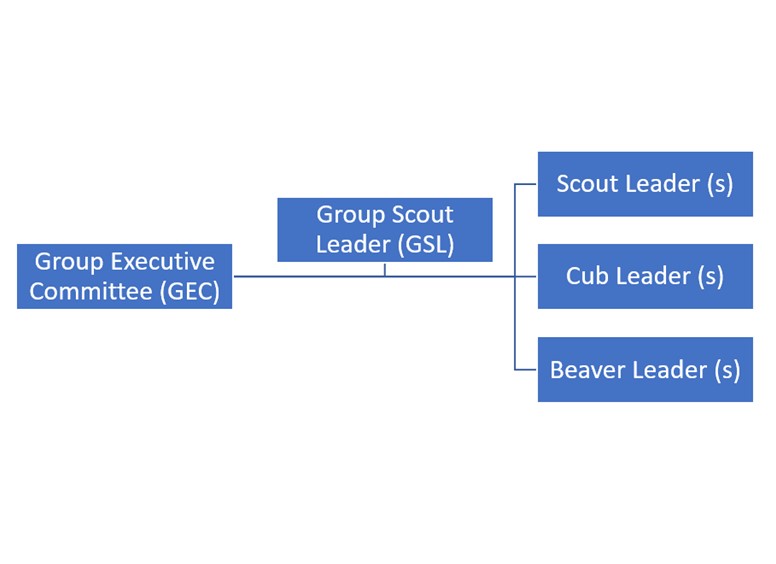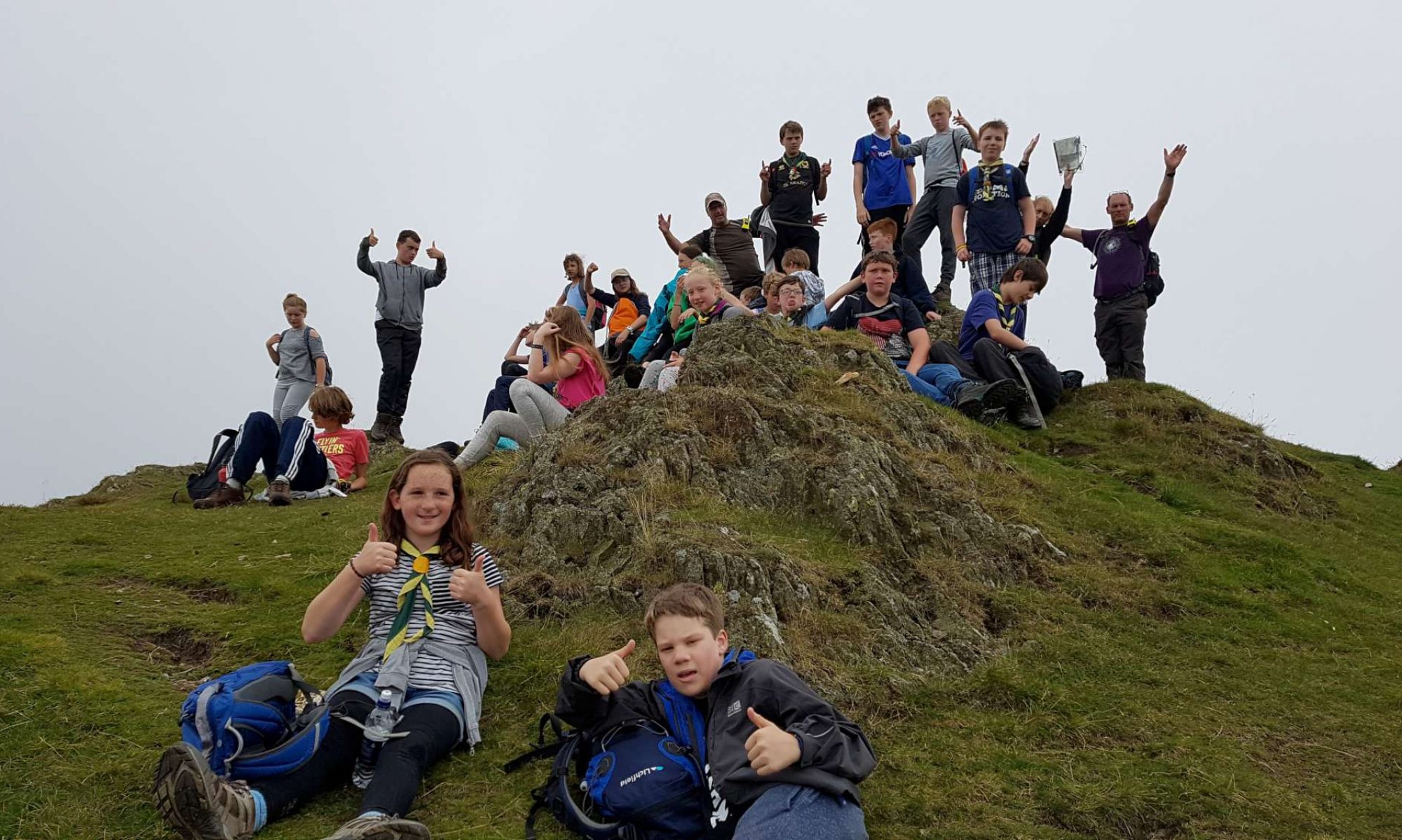This policy can also be downloaded here: PDF
Safety Policy
1. The Scout Association Safety Policy
It is the policy of The Scout Association to provide Scouting in a safe manner without risk to health, so far as is reasonably practicable.
The Association believes that this responsibility ranks equally with the other responsibilities incumbent upon those providing Scouting activities and functions.
It is the responsibility of all those involved in Scouting to seek, so far as is reasonably practicable, to ensure that:
- all activities are conducted in a safe manner without risk to the health of participants
- the provision and maintenance of equipment and buildings for Members and others is safe and without risk to health and adequate for their welfare.
- information, instruction, training and supervision is provided with the object of ensuring the health and safety of all those involved in Scouting activities or who may be affected by them.
- appropriate arrangements are made to ensure safety and the absence of risks to health in connection with the use, transport, storage and handling of equipment, and substances which are inherently or potentially dangerous.
The Scout Association Safety Policy can be downloaded here
2. 1st Linslade General Statement of Policy
a) Aim
The policy of the 1st Linslade Scout Group (the Group) is to meet The Scout Association’s (TSA) Safety Policy by providing and maintaining safe and healthy activities, working conditions and equipment for all volunteers and members of the Group and users of the Group’s Headquarters at ‘Nyamba’, Mowbray Drive, Linslade, Bedfordshire, LU7 2PH
The Group shall endeavour to provide all necessary information, training and support for its members and maintain their awareness of health, safety and welfare issues.
The allocation of responsibility for safety matters and the specific arrangements to implement this policy is the responsibility of the Group Executive Committee (GEC).
This policy, and the way in which it operates, is reviewed annually by the GEC.
b) Duty of Care
All members of the Group and all users of the premises have personal responsibility under ‘Duty of Care’ This is a general legal duty placed on all individuals and organisations to avoid carelessly causing injury to persons or property. It requires everything ‘reasonably practicable’ to be done to protect the health and safety of others.
c) Responsibilities

The Group Executive Committee (GEC) has overall responsibility for health and safety at the Group’s headquarters and for all scout related activities. Specifically, the GEC is responsible for ensuring that:
- the Group and the premises are fully insured for all use and activities. The person with individual responsibility for obtaining and retaining the insurance policy certificates and all related documents is the Group Treasurer
- proper records are kept by Sections for all activities, and that, for emergency purposes, a register of members is available on demand and/or when needed. Currently all membership details are kept securely and digitally using onlinescoutmanager.co.uk Section Leaders have access to OSM and the Group Scout Leader has overall access and control.
- premises are properly maintained and are in a safe and healthy condition including:
- cleanliness
- fire safety
- safety checks
- registers of dangerous substances
Section Leaders are instructed in the use of fire-fighting equipment and first aid.
The Group Scout Leader (GSL) is responsible for ensuring that:
- all adult members and helpers are DBS cleared and follow TSA guidelines for working with young people, and fully understand the TSA Safety Policy
- risk assessments are carried out for all Scout related activities and that all members of the Scout Group fully understand their personal responsibility under ‘Duty of Care’
- accidents and near misses, are properly recorded and investigated
- first aid kits are in date
Section Leaders are responsible for:
- attending training when required to do so
- carrying out risk assessments before and during scouting activities
- conducting (and recording) termly fire evacuation drills in the log book provided and notifying the GEC or the GSL of any problems relating to firefighting equipment
- ensuring that access to escape doors, extinguishers and other fire-fighting equipment is not obstructed.
- following food safety guidelines
- recording all accidents near misses in the accident book provided and reporting serious matters to the GEC or GSL as soon as possible.
- providing first aid assessment and ensuring that a suitable first aid box is available when carrying out any scouting activity on or off the premises
- keeping all gangways and spaces clear of trailing cables and other obstructions so that it does not pose a hazard.
3. Arrangements and Procedures
a) Safeguarding Children
The Scout Association considers the safety of young people its paramount concern. Criminal record checks are an important part of the Association’s approach to safeguarding young people. The fact that adults in Scouting are subject to checks reinforces that Scouting is a safe organisation. This policy is thoroughly supported by 1st Linslade Scout Group.
All leaders must undertake a DBS check (Disclosure and Barring Service) as an integral part of the appointment process. In addition, 1st Linslade Scout Group requires any adult supporting an activity or meeting to have a DBS check undertaken by the Scout Association.
The procedures used by the group to ensure safeguarding can be found in: Safeguarding in Scouting and 1st Linslade’s Child Protection and Safeguarding Policy
b) Risk Assessments
The Group Scout Leader is responsible for ensuring that risk assessments are carried out by Section Leaders for all Scout related activities. Risk assessment help to protect everyone in the Group by focusing attention on the risks with potential to cause harm.
The Scout Association rules and guidance require risk assessments be carried out for all activities. A risk assessment allows those running the activity to identify potential hazards and to take steps to minimise these while delivering an exciting activity to the young people in their care. In addition, The Scout Association rules and guidance sets out adult to young people ratios in certain circumstances. Where necessary, leaders with suitable adventurous activity permits and “Nights Away” permits will be present on Scouting events to comply with POR.
It is the responsibility of the leader in charge of the activity to carry out the risk assessment which should be regularly reviewed both before and during an activity. Experience shows it is often the activity that is run regularly with little perceived risk where incidents may occur. Regular re-assessment of familiar activities will allow changes in the risks over time to be identified.
The Scout Association has published guidance documents and factsheets to assist with risk assessments to which leaders are directed and reminded of regularly.
c) Premises
The GEC is responsible for ensuring that the premises are fully maintained, are in a safe and healthy condition and meet with current safety standards including.
- regular checks on the building and installations and regular monitoring of the effectiveness of the safety arrangements;
- safety inspections, monitoring of the maintenance of equipment;
- maintaining safety records;
d) Fire Safety
- The GEC has overall and final responsibility for reviewing the fire safety arrangements and making recommendations for improvements and maintenance;
- Section Leaders and users of the premises must notify the GEC of any problems relating to firefighting equipment during normal use of the premises or in the event of an emergency needing the use of this equipment.
- Appropriate signage and emergency evacuation procedure notices are displayed around the premises. Section Leaders and users of the premises must notify the Group Executive Committee of any problems arising from losses or otherwise to signage and procedure notices during normal use of the premises.
- Section Leaders and regular users of the premises must carry out regular fire drills during their own activity sessions and record these in the log book provided. For Scouting sections fire drills must be conducted at least termly.
- A Fire Risk Assessment has been carried out to the premises. Fire and Emergency Precaution Procedures have been published and are displayed around the premises (see separate Notices and Procedures).
- Section Leaders must ensure that access to escape doors, extinguishers and other fire-fighting equipment is not obstructed. The GEC is responsible for ensuring that Section Leaders are instructed in the use of fire fighting equipment
- Refer to Annex 1 for additional guidance on emergency evacuation procedures.
e) Accidents and Near Misses
- All accidents and near misses are recorded in the accident book provided. Serious matters must be reported to the GSL or GEC as soon as possible providing additional information as necessary. Refer to the Group’s First Aid and Accidents Policy and Procedures.
f) First Aid
Section Leaders are responsible for first aid assessment and for ensuring that a suitable first aid box is available when carrying out any Scouting activity on or off the premises
g) Hygiene and Welfare
- The GEC is responsible for cleanliness i.e. ensuring that all areas are kept clean and tidy. Toilets must be washed regularly and kept clean and wash basins have hot water, soap, clean paper towels or hand dryers. All rubbish must be removed from the premises on a regular basis and placed in a suitable container or storage area. Smoking is allowed on the premises at any time.
- Section Leaders are responsible for ensuring that all floors and gangways and spaces underneath furniture are kept clear of trailing cables and other obstructions. Furniture and equipment must be positioned so that it does not pose a hazard and so that wheelchair users are able to have safe access to all areas and equipment. Filing cabinets and cupboard doors should be kept closed. Items should not be stacked on top of cupboards or cabinets.
h) Premises / Hazards
All users of the premises are responsible for spotting and reporting hazards or potential hazards. If a hazard is seen, it should be removed or dealt with as soon as possible, or if not, reported to the GEC.
i) Things Out of Reach
Chairs or other furniture must not be used to stand on for the purpose of replacing light bulbs, reaching for things off the top of cabinets, etc. A properly maintained, undamaged step ladder must be used.
j) Damaged Equipment
Regular checks are carried out on furniture and equipment for damage which leaves sharp edges protruding or other hazards. Any damaged furniture must be reported straight away and of necessary, removed from use. All damage must be reported immediately to the GEC.
k) COSHH Regulations
- Under the COSHH (Control of Substances Hazardous to Health) Regulations 2002, the Group has a duty of care to make an assessment of the risks related to hazardous substances e.g. chemicals, noxious fumes etc kept and used on the premises. Gas cylinders and fuel for the generator are kept in the external locked cage to the rear of Nyamba adjacent to the lower container.
- A register of these substances is kept by the GEC and stored, so that it may be provided to the Emergency Services should the need arise. This register includes the substance involved with the full name and the exact location on the premises.
- All members of the Group shall avoid using hazardous substances at all times if at all possible. Where substitute materials are available they should be used (e.g. water-based markers, correction fluid, etc). If there is no way of avoiding such use, members must use the substance in an enclosed, ventilated environment away from other members, and use proper protective equipment which shall be made available by the Group.
l) Manual Handling
- All members of the Group should avoid manual lifting where at all possible. However, members may occasionally be required to manually lift and handle loads.
- Correct manual lifting and handling reduces the effort required and prevents strain and risk of injury.
- Members should not put themselves at risk by attempting to lift heavy loads which could be taken apart or divided into smaller quantities. The assistance of other members should always be sought for moving large quantities or for lifting heavy and awkward loads. When lifting is done by a team, instructions should be given by one person only.
m) Food Safety
Everyone has a responsibility under ‘Duty of Care’ when preparing and serving food. There are also responsibilities under the Food Safety (General Food Hygiene) Regulations and Food Safety (Temperature Control) Regulations.
n) Lone Working
Lone working refers to a person working by themselves without close or direct supervision or without immediate peer contact. Lone working must be avoided unless a risk assessment has been carried out and there are suitable control measures in place.
4. Other Resources
FS120000 Activities Risk Assessment (PDF)
FS320010 Managing a Safe Scout Premises (PDF)
Safety Checklist for Leaders (PDF)
Safety Checklist for Executive Committees (PDF)
Safety Checklist for Managers (PDF)
Safe Scouting and what to do in Emergency (Purple Card)
1st Linslade Building & Premises Policy
1st Linslade Child Protection and Safeguarding Policy
1st Linslade First Aid and Accidents Policy and Procedures
Document History
This version approved 24/09/18
Review September 2019
Annex 1
In an emergency: GET OUT – STAY OUT – CALL 999
Emergency Action Plan
- In the event of a fire, someone (usually the adult in charge) using the premises will activate the alarm (alarms are in the Troop room, main room and downstairs storage areas).
- The adult in charge must take the register and
- Everyone is to calmly evacuate the building. Leaving either by the front exit of the building or the rear exit down the stairs
- Once evacuated, everyone should line up at the assembly point – on the grass adjacent to the car park opposite the main entrance gates for a roll call.
- Call 999
- Address: 1st Linslade Scout Huy, Mowbray Drive, Linslade, LU7 2PH
- It is suggested that the overall Leader takes the roll call, with an assistant calling the emergency services: 999
Bedfordshire Fire and Rescue Service
Southfields Road, Bedford, MK42 7NR, 01234 845000
Police
Dunstable Police Station, West Street, Dunstable, LU6 1SJ
Call 101 or in an Emergency 999
Nearest hospitals with 24 hour Accident & Emergency Departments
| Luton & Dunstable | Lewsey Rd, Luton |
01582 491166 |
| Milton Keynes General | Eaglestone, Milton Keynes | 01908 660033 |
| Stoke Mandeville | Mandeville Road, Aylesbury | 01296 315000 |
Gas
| Gas Emergency Service | 0800 111 999 |

